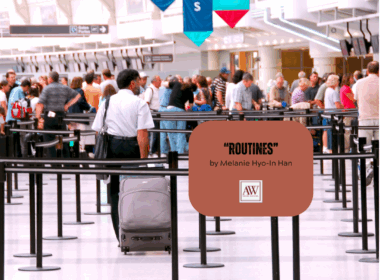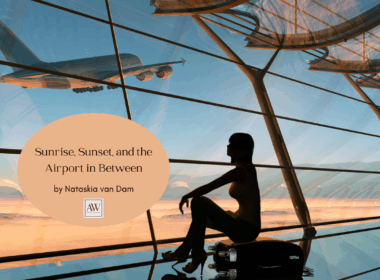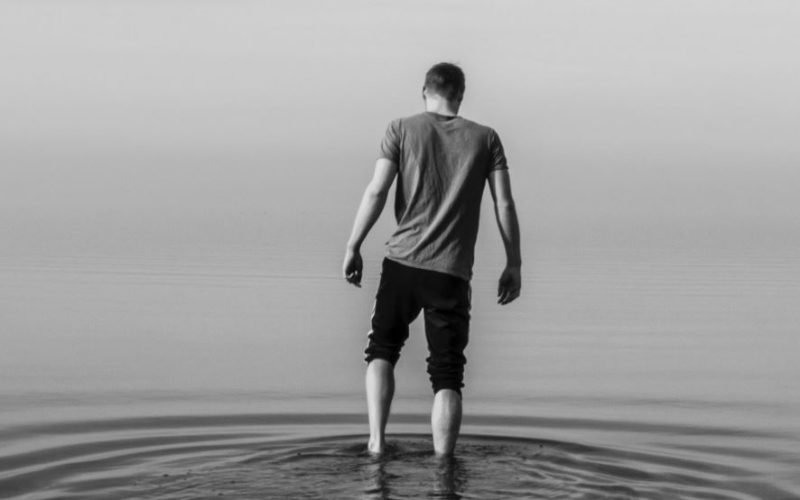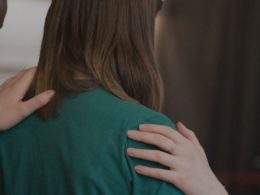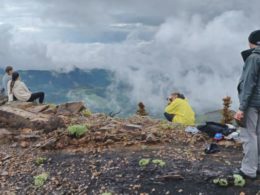By Rachel E. Hicks
It was a gorgeous, slightly chilly spring evening.
My husband Jim and I were taking a walk around the neighborhood with friends, a couple and their baby, whom we’d known for several years. I was quietly enjoying our conversation, enjoying their presence. Time spent with them was always heart-warming—they’re the kind of friends with whom you can laugh and goof off, but also share deeper stuff.
And suddenly, they did. “We’re thinking about moving to Georgia,” one of them said.
Immediately I could hear a huge metal gate inside me crashing shut. My chest tightened and I took a slow, deep breath. I was thankful that Jim intuited what was happening inside me, and he bought me some time by asking follow-up questions. I managed some wows and mm-hmms and oh, okays and soon we were parting ways to head to our respective homes, where I slumped onto the couch in a predictable funk.
What happened?
If you’re a TCK with a highly mobile past, you probably know exactly what happened. It’s what happens to most of us when someone we’ve been friends with or getting close to says they’re moving away: that friendship gate slams closed to protect our hearts from yet another painful parting. While we go through the motions of perhaps another long goodbye, we’ve already pulled away inside.
I didn’t want to lose this in-person friendship. I was almost mad at myself at first for letting these dear friends into my life and heart, for letting down my defenses. My impulse was to shut up my heart.
But what kind of a life does that make? Annie Dillard once said, “How we spend our days is, of course, how we spend our lives.” If I spend my days closing up my heart, I will spend my life with a closed heart. Of course.
A life of high mobility can make us shallow— relationally and in terms of knowledge and understanding. It’s an “occupational hazard.” If we’re often moving from city to city or country to country, we may become familiar with many places, cultures, and people. We think we know them, but our knowing doesn’t go very deep. Part of this is because of the lack of time spent, and part of it is because our hearts try to protect us.
We make and then lose relationships, over and over again. We lose touch with people. Even if we do stay in contact over distance, the relationships are often more shallow and less satisfying than they were in person. When we reminisce with old friends, the memories sometimes feel paper thin.
Or we live somewhere new for a while. We learn enough of the language to get around using
public transportation or to order food. We take pictures of ourselves at all the key landmarks and attractions. And we’re aware the whole time—like an undercurrent—how shallow our knowledge of that place and people really is.
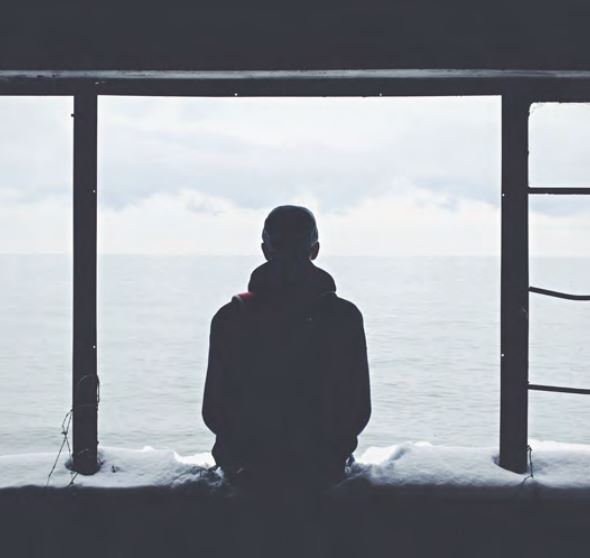
We may find that we have become
shallow people.
Energy—emotional and mental—is required of us for really seeing others (places or people); and only when we truly see can that seeing lead to knowing and loving. How much energy do we have to spend on yet another new place or person? How do we not exhaust our energy “reserves,” or at least find a way to fill them up again when they are depleted?
And the time- and energy-suck of social media exacerbates this, even if it also—paradoxically—helps us to hang onto friendships scattered across the globe.
Staying in the shallows is risky. It feels easier, and maybe it is in some ways. But the big risk is we may arrive at our later years realizing that what we missed out on was, in fact, life. Years into adulthood, we may find that we have become shallow people. We’ve either forgotten or haven’t ever learned how to attend to people or things around us. We’re just flitting on the surface of everything.
That’s a jolting realization.
But becoming aware of the risk of shallowness doesn’t mean we know what to do about it.
What helps
I’m going to offer a few things that may help us. They are mostly all practices. So, you’re probably not going to do them unless you decide the shallows are riskier than the deeps; unless you find some courage inside you to launch out beyond where it feels safe, beyond where your feet can touch.
And, by the way, when I say practices, I refer to the word in the sense it’s often used in religious communities or ways of life: habits and orders of daily life that we choose in order to slowly shape ourselves into a different kind of person.
You already do this. You already have orders or routines in your daily life, in your daily activities, that are shaping you. You just may have never examined what those practices are and how they are shaping you—what kind of person they are shaping you into. It’s good to examine those things; it’s good to ask, “Who or what is forming me?” and “Am I OK with that, or does something need to change?”
So, here we go:
- Attentiveness
I mentioned attending a moment ago. Learning attentiveness is a practice. As I said before, before we can know or love, we have to learn to see. Pay attention. Try to nurture in yourself curiosity in others—grow in listening. Begin to notice facial expressions, body language, eyes that light up in delight. Let others surprise you with their otherness. (Forget about yourself for a while as you do all this.) Wherever you are, take in sights, smells, tastes—not in the consumerist way a tourist does, but just to delight in what you hear and see and smell. You don’t have to own this place in some way. Just be there and notice it. Learn what you can. Don’t rush through each moment. - Voluntary confinement
This is somewhat revolutionary. What I mean is this: Stay. Commit. That highly mobile life you’ve been leading? And to which you have perhaps become addicted? Maybe your life would be richer if you decided to stop moving and actually stay. Plant yourself somewhere specific. Go deep into that community—let it become a part of you. Grow a root or two. Experience what it’s like to develop a longer history with the people around you. Learn the unique beauty of deep, rather than the thin beauty of broad. You can’t be an expert on every place or everybody. Instead of trying to, become an expert on this place and/or these friendships.
This applies to relationships in other ways, too. Stay in the moment of a hard conversation. Be willing to sit in that discomfort long enough to push through to a reconciliation, or at least to an understanding. Commit to that in-person relationship long enough to experience—and even learn to be grateful for—its long and varied seasons.
Last summer, I heard writer Lauren Winner drop this nugget of wisdom at a conference: voluntary confinement can lead to inner spaciousness. Let that percolate in your brain for a bit… - Boredom
I’m pretty sure most of us have ADHD by now. If we weren’t predisposed to it, our tech habits have doomed us. You’ve probably read at least some of the alarming studies that show how our use of media and technology is actually rewiring our brains so we can’t pay deep attention anymore. (I mean, how many of you are still reading this essay?)
But can boredom be a practice? And even if so, why is it something we should try to cultivate? OK, maybe I don’t actually mean learn to be bored—what I mean is, don’t try to fill every single moment of your waking life with stimulation or input. When you’re in line, or on a train, or in the doctor’s office waiting room, don’t reach for your phone, or turn on the radio, or grab a magazine. Believe it or not, there’s a lot more going on in your mind than you imagine. Give your brain time to rest, to wander, to let some things surface and some things sink. Our brains need time to recharge beyond just when we sleep. Often, periods of what might look like boredom end up leading to creativity, new ideas, and surprising revelations.
My kids would always roll their eyes at me when I would say, with a wink, “Only boring people get bored.” Let your mind surprise you with all the magical and interesting things it can do if you just let it be, not seeking to prod it with external stimulation all the time. A practice of enjoying “boredom” can actually lead us to richer, fuller lives. - Read literature
I’m an English major, a former English teacher, and a poet and writer, so I know I am seriously biased in prescribing this practice. I won’t go on about it but will just say briefly that reading good literature is formative, whereas reading nonfiction is informative. When you read a well-written piece of fiction, you live vicariously through others, learning to see what and how they see. This often leads to an increase in empathy, which can make us deeper and wiser. OK, that’s all.
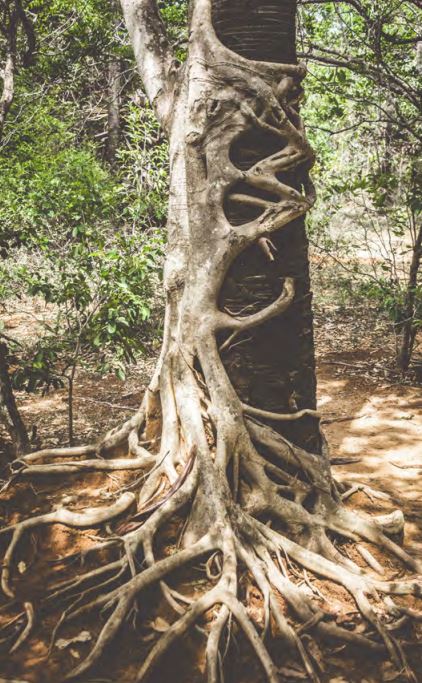
Our brains need time to recharge beyond just when we sleep.
(Quick caveat: When we are in the midst of trauma or crisis, these practices are very difficult, if not impossible. There will be time for these later, once healing comes.)
All of these practices involve a cost, usually in terms of time and energy. But inattentiveness and shallowness also cost us. The question is, which price would we rather pay? For my part, I want the practices that lead to more human flourishing, to that perhaps messier but richer, deeper life that makes living worthwhile.
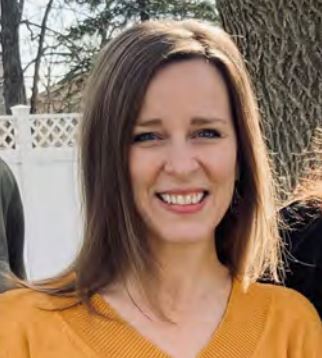
Rachel E. Hicks is a TCK who has lived in India, Pakistan, Jordan, Democratic Republic of Congo, Hong Kong, the USA, and China. She is the editor of Among Worlds. She is also a poet and freelance copyeditor. Read more about her work at rachelehicks.com


